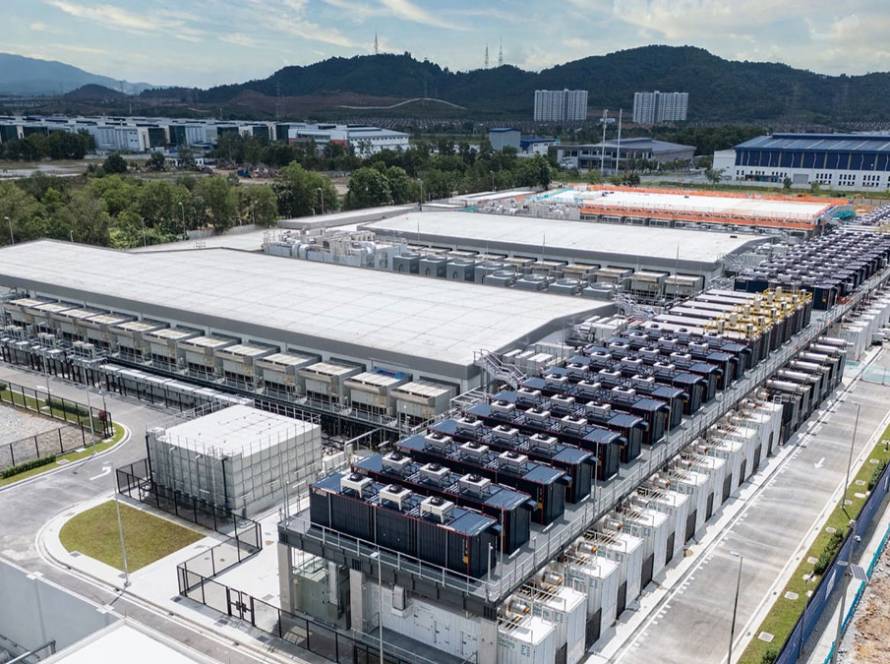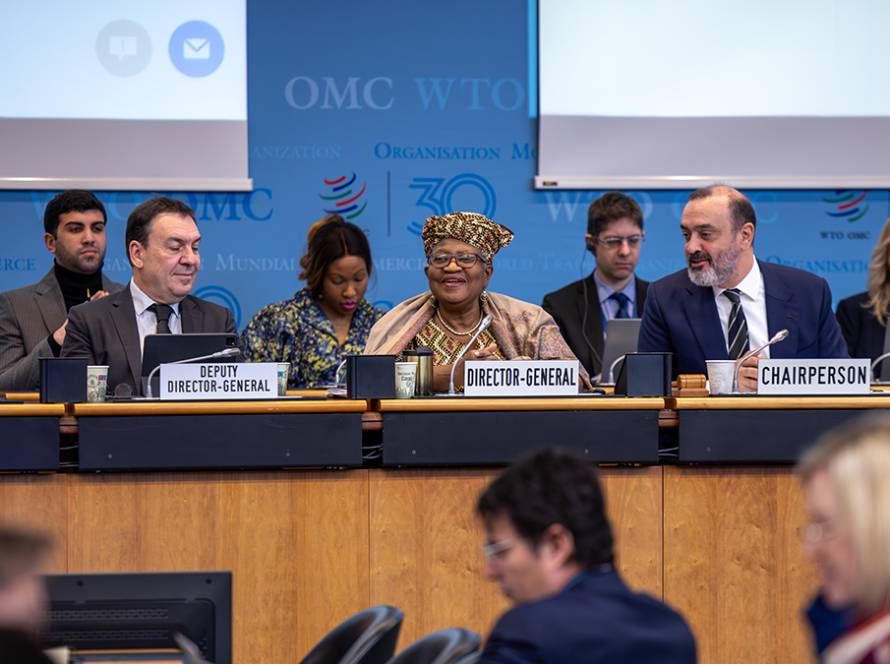Director-General Ngozi Okonjo-Iweala called on world leaders, government officials, and business figures to “take a deep breath” and “chill” in response to growing trade policy uncertainties during her participation at the World Economic Forum Annual Meeting in Davos, Switzerland, from January 21 to 24. During the week, she also attended an informal ministerial gathering on WTO issues, organized by the Swiss government, where ministers demonstrated “strong support for the WTO and the rules-based trading system.”
The theme of the WEF Annual Meeting was “Collaboration for the Intelligent Age.” Throughout her speaking engagements and interactions with heads of state, government officials, and business leaders, DG Okonjo-Iweala emphasized the critical role the WTO plays in the world economy and in addressing current global challenges. She also stressed the dangers of increasing economic fragmentation and the trade opportunities that arise from advancements in artificial intelligence and the green economy. Furthermore, she warned against escalating trade tensions, which could lead to a destructive trade war.

On January 21, during the session titled Finding Growth in Uncertain Times, she noted that trade has remained resilient amid recent crises, asserting that “trade will still be a source of growth.” She referred to findings from a recent WTO study that suggests trade could experience double-digit growth if artificial intelligence tools are adopted, as they would reduce trade costs and enhance productivity. DG Okonjo-Iweala also highlighted the WTO’s importance beyond tariffs, stressing its role in ensuring food and product safety standards for imported goods. She cautioned about the dangers of increased trade fragmentation, noting, “Simulations show that splitting into two geopolitical trading blocs and adding trade policy uncertainty could lead to a global GDP loss of 6.4% in the long term, which is equivalent to losing the economies of Japan and Korea combined.”
On January 22, during the Squaring the Climate Trade Circle session, DG Okonjo-Iweala discussed trade’s vital role in environmental preservation. “You can’t have the adoption of clean energy technology without trade,” she pointed out. She suggested that countries should produce and export goods based on their environmental comparative advantage, focusing on products that cause minimal carbon emissions.
On January 23, DG Okonjo-Iweala participated in a town hall titled Debating Tariffs alongside Valdis Dombrovskis, European Commissioner for Economy and Productivity. She remarked, “It’s easy to use tariffs, and they seem appealing as a policy tool, but I hope we conduct a thorough analysis of what this really means.” Addressing potential new tariffs in the United States, the Director-General warned against a retaliatory spiral, recalling how the trade wars of the 1930s exacerbated the global economic crisis. She cautioned, “If we resort to tit-for-tat retaliation and return to the situation of the 1930s, we could see double-digit global GDP losses. That would be catastrophic for everyone, especially poor countries.”
On January 24, DG Okonjo-Iweala attended a ministerial gathering on WTO issues at the invitation of Guy Parmelin, Swiss Federal Councillor and head of the Department of Economic Affairs, Education, and Research. During the meeting, ministers discussed the way forward for the WTO and initial plans for the 14th WTO Ministerial Conference, scheduled for March 2026 in Yaoundé, Cameroon.
DG Okonjo-Iweala urged members to move beyond “business as usual” and long-standing positions. She encouraged them to focus on advancing reform within the organization, stating, “The context is changing, we must deliver, and we must modernize.” According to a meeting summary shared by Mr. Parmelin, ministers emphasized the importance of the WTO and the rules-based, transparent, and predictable multilateral trading system.


